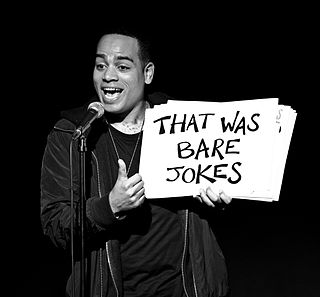A Quote by Rajneesh
Millions of people are suffering: they want to be loved but they don't know how to love. And love cannot exist as a monologue; it is a dialogue, a very harmonious dialogue.
Related Quotes
When I go to the cinema, I want to have a cinematic experience. Some people ignore the sound and you end up seeing something you might see on television and it doesn't explore the form. Sound is the other picture. When you show people a rough cut without the sound mix they are often really surprised. Sound creates a completely new world. With dialogue, people say a lot of things they don't mean. I like dialogue when it's used in a way when the body language says the complete opposite. But I love great dialogue I think expositional dialogue is quite crass and not like real life.
We have been making constant efforts, all the time, to start dialogue with the SLORC, but you know it takes two. We don't want a monologue. We would like a substantive political dialogue among the SLORC, political leaders including myself, and leaders of ethnic groups-exactly as stipulated in the U.N. General Assembly resolution on Burma.
I love acting with very little dialogue. As long as it's supported. I mean, in terms of cinema, you can have a great monologue, but if you're not supported by the images ... You can be feeling things and then you see it back, and you're like, "None of that came across." Or the angle of my face gives it a completely different interpretation than what I was trying to communicate.
Of everything I have seen, it's you I want to go on seeing: of everything I've touched, it's your flesh I want to go on touching. I love your orange laughter. I am moved by the sight of you sleeping. What am I to do, love, loved one? I don't know how others love or how people loved in the past. I live, watching you, loving you. Being in love is my nature.
["Fear & Loathing in Las Vegas"] is a very hard book to translate to film because there's so much interior monologue. The what if factor. I tried to write it cinematically and let the dialogue carry it but I forgot about the interior monologue. It's kind of hard to show what's going on in the head. I think we should do it like a documentary.





































